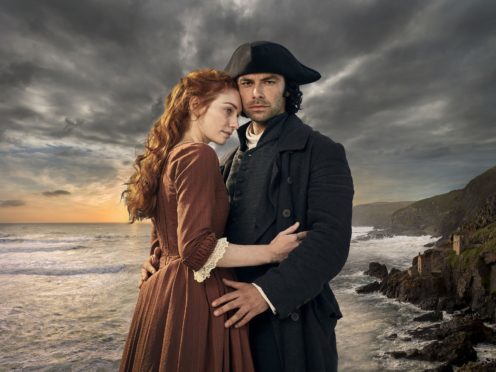Poldark writer Debbie Horsfield has said the new series of the period drama is the most political yet, and has parallels with today’s society.
The smash hit BBC programme, set in 18th century Cornwall, has recently returned for a fourth series which will see Ross Poldark (Aidan Turner) heading to London to become an MP.
The televisions series is based on novels by Winston Graham, first published in the 1940s, but Horsfield said when she was writing the adaptation it did not need to be updated.
She told Radio Times magazine: “The subjects that Winston Graham was writing about are as relevant now as they were when he first embarked on the saga, and as they were in the era that he writes about.
“Take his depiction of the banking industry. Who knew that bankers could be greedy, corrupt and out for themselves?
“Some of the events we depict in series four remain chillingly real today.
“For instance, Ross realises that because of food shortages and the price of corn, people can actually be in work and yet still can’t afford to eat.
“While I was writing series four, I heard a news item that described how in one part of Liverpool, 80% of the people using food banks had jobs but still couldn’t make ends meet. It seems some things don’t change.”
Horsfield continued: “Even the arguments over welfare are depressingly relevant.
“Ross believes it’s in the interests of employers and society to keep people fed, to ensure they’re fit to work because they are not starving.
“George Warleggan, typically, asks, ‘Where’s the incentive to work if we’re giving people money?’ Another familiar argument.”
The writer and producer said period dramas can sometimes feel “prettified or sanitised” but that it was important for the Poldark stories to feel relevant.
She said: “We aimed, for instance, to make the struggles of Ross and his shareholders in the copper-smelting co-operative, or the sometimes impenetrable politics of the 18th century, the stuff of life and death.”
Horsfield said while Ross Poldark is “not quite the Jeremy Corbyn of his time”, his sympathies are with the common man.
“Being a politician proves to be a huge struggle for Ross – but then, it wouldn’t be Poldark if there wasn’t a struggle,” she said.
The Radio Times is out on Tuesday.
